Tips for growing and caring for Bleeding Hearts
Bleeding Hearts are low maintenance, fast growing perennials that are great for shady areas.
They can be grown directly in the garden or planted in large containers for gorgeous summer blooms.
This post contains affiliate links. Please read the disclosure for more info.
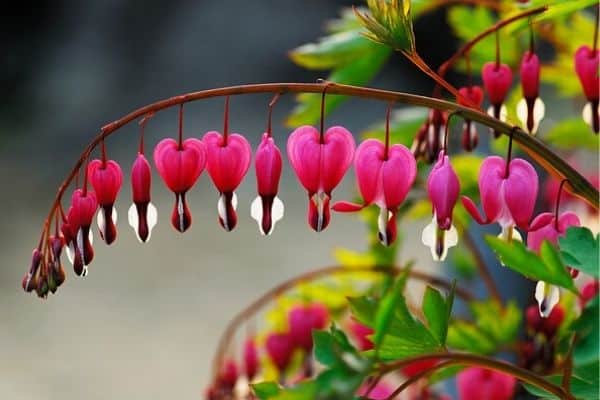
Bleeding Hearts (Dicentra spectabilis), also known as Asian Bleeding Hearts are native to Northern China, Korea, Japan and Siberia. [1]
They have beautiful heart shaped flowers in red, pink
and white
.
HOW TO GROW BLEEDING HEARTS
Soil
Bleeding Hearts like rich, fertile soil. Before planting, dig some compost into the area and mulch around the plants to reduce moisture loss.
Sunlight
Bleeding Hearts prefer to grow in cool, shady areas.
In cool climate areas, they can be planted in a spot where they will get partial sun or even full sun if the weather is cool enough.
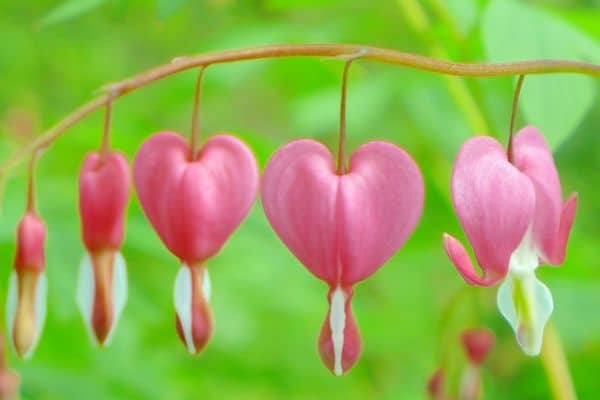
When do Bleeding Hearts bloom?
Bleeding Hearts flower from summer to fall but they may take a couple of seasons to bloom after planting.
How tall do Bleeding Hearts grow?
There are many different varieties of Bleeding Hearts that range from 1.5 feet (45 cm) to 3 feet (90 cm) tall.
Growing Bleeding Hearts from Seeds
The seeds can be scattered in the garden in late fall and they will sprout in spring when the ground warms up.
Bleeding Hearts also self-seed readily.
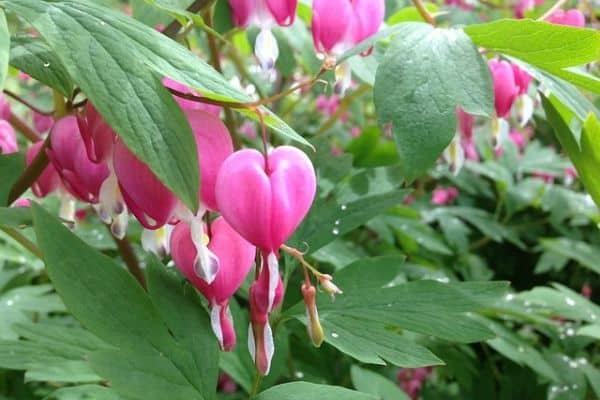
Growing Bleeding Hearts from Cuttings
To propagate Bleeding Hearts from cuttings, take a 6 inch (12 cm) section of stem and trim off the lower leaves.
Place the cuttings in moist perlite or sand and roots will form in about 6 weeks.
The best time to take cuttings is straight after the plant has finished flowering.
Important Note: All parts of the plant are poisonous and can cause skin irritation. It’s a good idea to wear gloves and long sleeves when working with Bleeding Hearts.
Dividing Bleeding Hearts
The clumps will need to be divided every 2 to 3 years to keep them healthy and prevent them from growing too big.
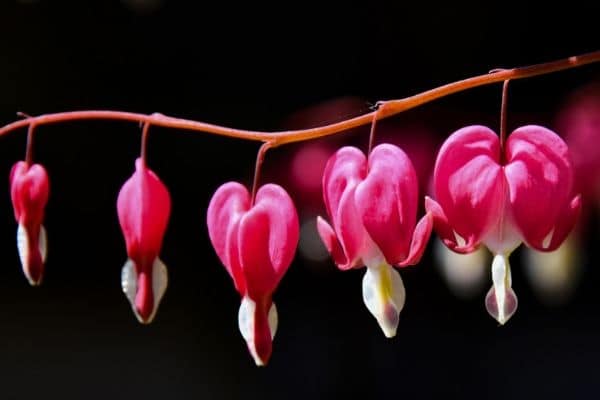
Water Requirements
Bleeding Hearts need to be watered regularly throughout the growing season, especially in hot weather. The soil should be consistently moist but not waterlogged. Adding a layer of mulch can help to keep the roots moist in warm weather.
Pests & Diseases
Bleeding Hearts can be affected by slugs, snails, aphids and leaf spot.
Pruning
After the plants have finished flowering, deadhead the spent flowers to tidy up the plant.
Once the foliage starts to turn yellow, the whole plant can be cut back to ground level.
Companion Planting
Bleeding Hearts can be grown alongside other shade loving perennials like Astilbe, Hosta or Hydrangea
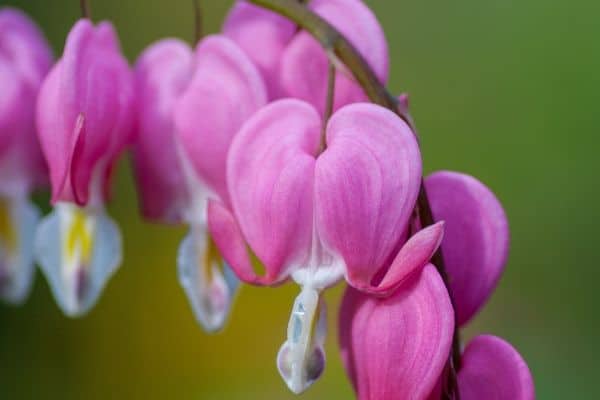
Can Bleeding Hearts be grown in containers or pots?
Bleeding Hearts can be grown in large containers with well-drained, rich potting soil. Perlite or peat moss can be added to the potting mix to improve drainage.
Can Bleeding Hearts grow in full sun?
Bleeding Hearts prefer shady areas, but in cool climates they can be grown in a spot with full sun or partial shade.
Are Bleeding Hearts Frost Tolerant?
Bleeding Hearts become dormant at the end of summer or early fall and reappear again in spring, so frost shouldn’t be too much of a problem.
A thick layer of mulch over the soil will protect the roots from winter frosts.
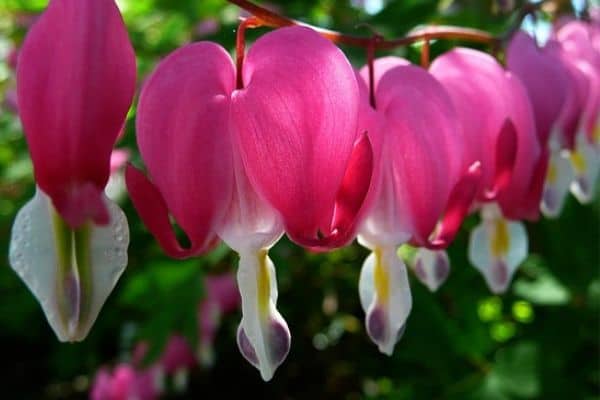
Bleeding Hearts are easy perennial flowers for beginner gardeners to grow.
They’re great for shady corners of the garden and they don’t need much ongoing care.
Just be sure to keep the roots moist and deadhead the old flowers and they’ll reward you with their gorgeous blooms all summer and even into fall.
Here’s a quick video that explains more about growing Bleeding Heart flowers.
RELATED ARTICLES
Have you tried growing Bleeding Heart Flowers in your garden? Let me know in the comments below.
Are you on Pinterest? I have boards dedicated to Flower Gardening and Gardening Tips that you may enjoy. You can also find me on Facebook.

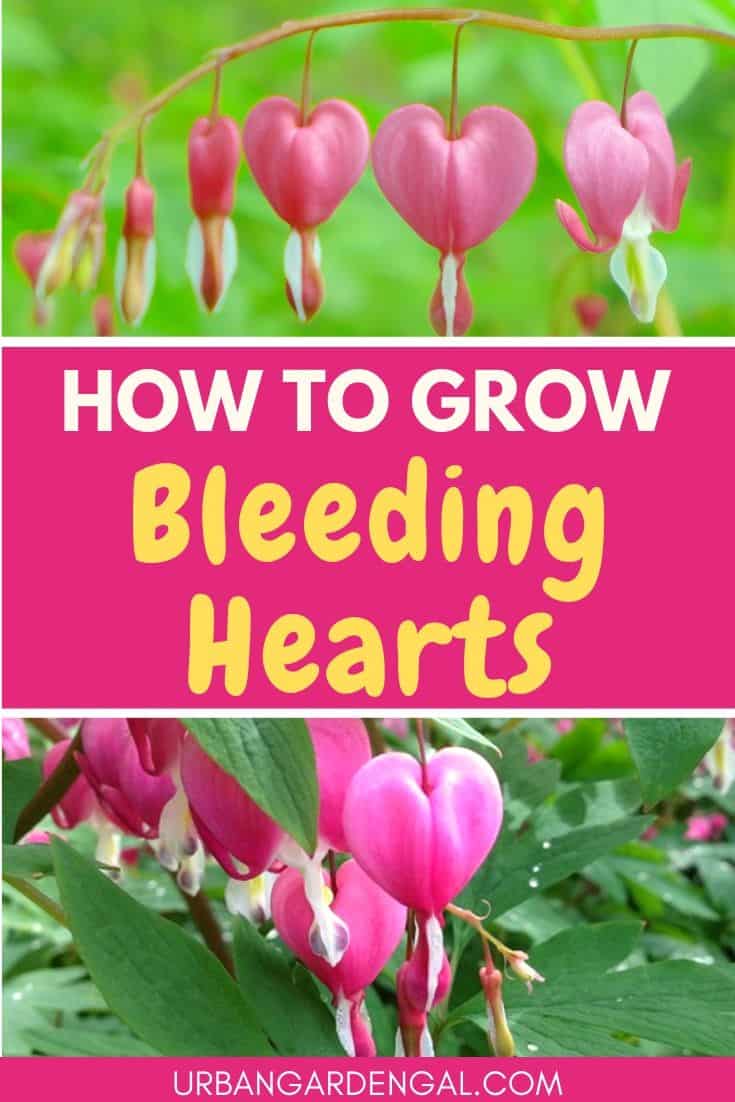
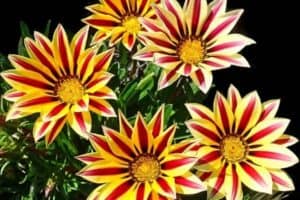
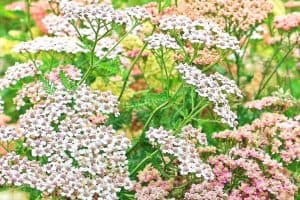
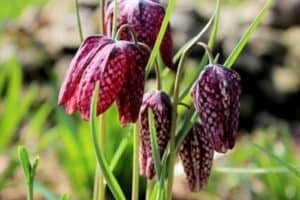
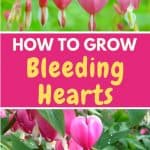
This is the first time I saw this plant. It looks lovely. I hope we have seedlings of this plant in my country.
Wow, I actually really love these flowers! They’re just so pretty!
I’ve never seen bleeding heart flowers before. They are so pretty! I would love to grow them at our home.
One of my wife’s favorite flowers! The fact that they’re perennials makes it easier to maintain.
These are so stunning!! I have never seen them before, not sure if they’d like the climate in Australia. I’m more into growing succulents and cacti.
Beautiful flowers! I am wondering if they would also grow good in tropical climate? I want lots of flowering plants because they are like therapy for me. I will research more about this pretty flower and how to care for it.
I had this one in my garden but it has cut-off! I love this flower, it’s so cute. I had white and red colored bleeding hearts. But i will again plant them!
I get these flowers for my mom for her birthday every year!! She loves them
Wow, I love this bleeding flower plant. The best thing about this plant is that it’s frost tolerant and won’t die in winter.
I had never heard of bleeding heart flowers. In fact i don’t think I’ve seen them before but that’s exactly what they look like. Wow. Thanks for sharing.
Nice! Thank you for sharing your tips on growing Bleeding Hearts Kelly!
I’ve never seen this plant in person but it is beautiful, plus the name is unique. Does it grow in tropics like in my country?
Bleeding hearts grow best in cool, shady areas so they’re probably not the best flower for the tropics, sorry. They really are a beautiful and unique flower plant.
My bleeding heart has never bloomed. One season there as flowers but none in 3 years.
I live in South Florida. I have this plant in full sun. For those of you who asked, YES, this plant does great in tropical weather.
It can take high humidity, very hot sunny temperature and rainy areas. Believe me, when it rains here, it could go on for a couple of months. This plant is a thick woody vine and is best to put some support on the back. Possibly a lattice or wire supports. It will not climb on a wall on its own.
Bleeding Hearts make a great addition to flower arrangements or by itself.
Interested in any suggestions for how best to support our bleeding hearts as they get very leggy and flop over.
Thanks in advance.
Hi David, you can use a wooden stake or a wire trellis to support the plants, especially in windy areas.